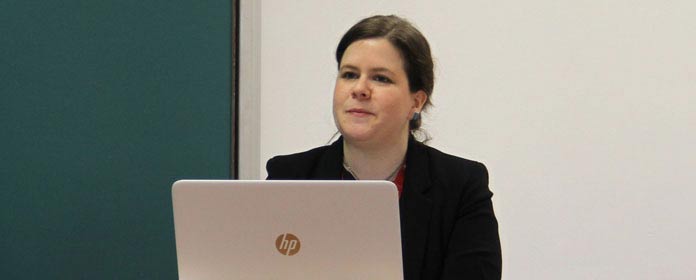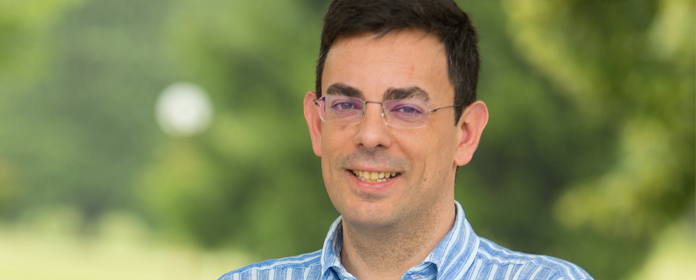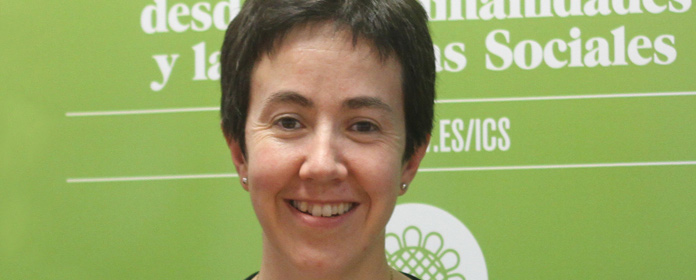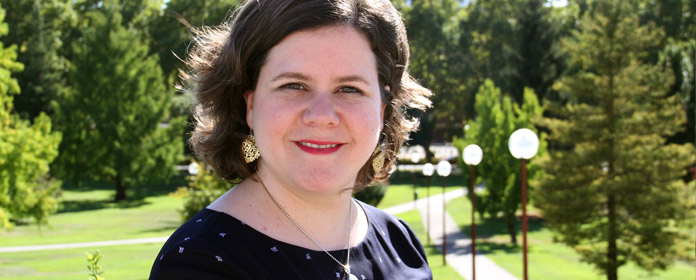#ReframeCovid: An initiative to move from the language of warfare to forms of expression that bring people together
Inés Olza, a researcher in the Institute for Culture and Society (ICS) at the University of Navarra, is one of the leaders of this project, which includes experts from a number of Spanish and international research centers

FOTO: Elena Beltrán
“From the beginning of the coronavirus crisis, metaphors of war and combat have been used to describe the virus in political circles, in the media, and across society as a whole. It would be more beneficial to use less violent images in a society that has shown its capacity to act responsibly,” says Inés Olza, a researcher in the Institute for Culture and Society (ICS) at the University of Navarra.
Olza is one of the drivers of the #ReframeCovid initiative, which aims to move beyond the linguistic framework of war in relation to coronavirus, replacing it with more inspirational language that fosters social cohesion around codes of behavior like the rules of social confinement.
A number of her peers read her posts on Twitter during the first week of confinement in Spain. Paula Pérez Sobrino, from the Universidad Politécnica de Madrid, created the hashtag (#ReframeCovid). They were joined almost immediately by Iraide Ibarretxe (Universidad de Zaragoza), Laura Filardo (Universidad de Valladolid), and Elena Semino and Veronika Koller (University of Lancaster).The latter opened a shared document to compile a corpus of metaphors used in relation to the coronavirus.
There are sports-related expressions (“don’t try to play games with the coronavirus”, “the match against Covid-19 goes on”), expressions relating to the sea (“row together”, “a wave of solidarity”) and nature (“an avalanche of cooperation and good will”), among other fields.
Olza also recommends the use of spatial metaphors: “our homes and cities will be virus-free,” rather than “winning the battle against the virus,” or “we must recover our health spaces together,” rather than “we must unite to defeat the enemy”.
Persuading people, now more important than everThis project is in line with one of Elena Semino’s research interests; in 2018, she gave a seminar at the ICS on how the use of metaphorsmay contribute to living through difficult experiences such as cancer. “In the case of coronavirus, some sick people will not recover and they, along with their families, may feel that they have failed or lost because the treatment has not worked,”she argues.
Another issue that Inés Olza highlights in relation to public discourses around coronavirus is that “there is an implicit idea that is not often heard from the authorities: the general impact of individual action”. Thus, she points out that expressions such as “social discipline”, “collective thinking and effort” and “solidarity” are repeatedly used in this context.
“This is connected to the idea of agency, addressed in many sociological studies: who has the capacity or responsibility to do something. Governments tend to emphasize the power of institutions, but in this case they know that everyone needs to cooperate. This involves an exercise in humility on the part of politicians: they know that, now more than ever, they have to convince us.”
Inés Olza is the lead researcher in the MultiNeg Project, which is part of the Emotional Culture and Identity research area in the ICS, financed by the Ministry of Science and Innovation and by FEDER/UE funds. The MultiNeg Project explores interactive negation, which Olza has been reflecting on in a particular way in recent times: “We are faced with a situation where, in principle, everyone sets aside their disagreements and competing agendas. The majority position among politicians is that this crisis cannot be conditioned by ideologies and that a sense of responsibility should be the top priority”.




